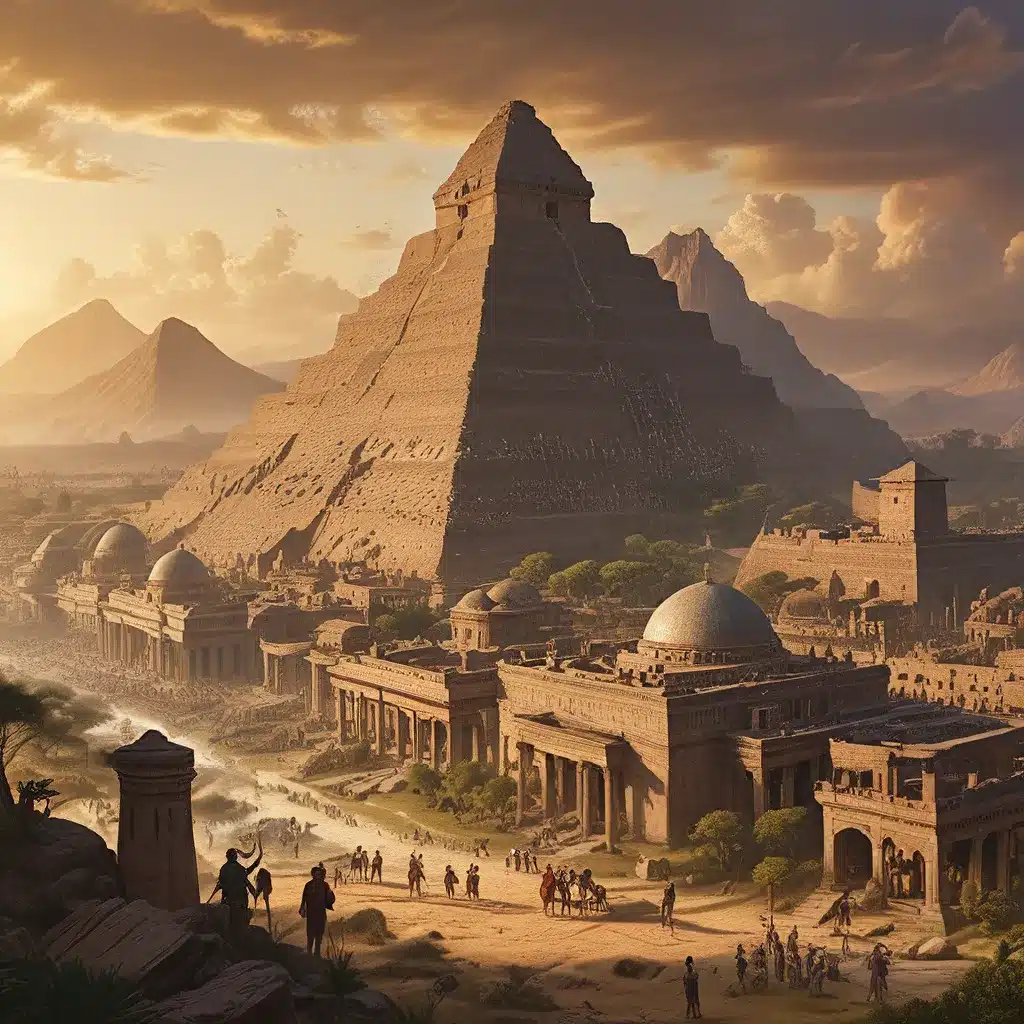
In the ever-evolving landscape of ancient history and archaeology, new discoveries and innovative approaches are continuously shedding light on the mysteries of long-lost civilizations. From the reconstruction of intricate cultural practices to the unearthing of forgotten artifacts, the process of uncovering and interpreting the past has become a captivating and enlightening journey.
Unraveling the Complexity of Ancient Societies
The study of history is a multifaceted endeavor, requiring a deep understanding of the diversity of human experience across time and place. Historians are skilled in examining and interpreting the transformations of societies and civilizations, using a range of methods and analytical tools to uncover the stories that have been buried beneath the sands of time.
One of the most fascinating aspects of this field is the reconstruction of ancient cultures and their significance in the broader context of human history. By piecing together the clues found in artifacts, documents, and other historical sources, researchers are able to paint a vivid picture of the ideas, institutions, and cultural practices that defined these long-gone societies.
The Lost Kingdoms blog is dedicated to exploring these captivating narratives, delving into the latest archaeological discoveries and the cutting-edge theories that are reshaping our understanding of the past.
Uncovering the Hidden Histories of Forgotten Civilizations
In recent years, a remarkable number of archaeological discoveries have challenged the conventional narratives of ancient history, revealing the complexity and richness of cultures that were once overshadowed or misunderstood.
One such example is the ongoing research into the Indus Valley Civilization, a Bronze Age urban culture that flourished in the Indian subcontinent from approximately 3300 to 1300 BCE. Long considered a lesser-known counterpart to the civilizations of Mesopotamia and Egypt, the Indus Valley society is now being recognized for its advanced urban planning, sophisticated language and script, and extensive trade networks.
Reconstructing the lives and practices of the Indus Valley people has been a painstaking process, with archaeologists piecing together the fragments of pottery, seals, and other artifacts to uncover the daily routines, religious beliefs, and technological innovations that defined this captivating civilization.
Challenging Preconceptions and Exploring New Theories
The field of ancient history is constantly evolving, with new discoveries and reinterpretations of existing evidence challenging long-held assumptions and opening up new avenues of inquiry.
One intriguing example is the ongoing debate surrounding the role of race in the development of ancient civilizations. Conventional narratives have often perpetuated the idea of certain cultures or ethnicities being inherently superior in their achievements, but recent research has begun to dismantle these flawed and biased perspectives.
Scholars are now exploring the complex interplay of geography, trade, and cultural exchange in shaping the rise and fall of ancient empires, challenging the simplistic notions of racial superiority that have plagued the study of history.
Empowering Communities through Historical Understanding
The study of ancient civilizations is not merely an academic pursuit; it holds the power to transform our understanding of the present and empower marginalized communities to reclaim their rightful place in the larger narrative of human history.
As historians examine the diversity of human experience across time and space, they uncover stories that have been suppressed or overlooked, shedding light on the struggles and achievements of cultures that have been historically marginalized.
By reconstructing these forgotten histories and amplifying the voices of the past, researchers and educators can help to bridge the gaps between our understanding of the present and the lessons that can be learned from the past. This, in turn, can foster a deeper appreciation for cultural diversity and a more nuanced understanding of the complexities that have shaped our world.
Conclusion: Embracing the Richness of Human History
The journey of reconstructing and reimagining the past is an ongoing and ever-evolving process, one that challenges us to constantly reevaluate our assumptions and embrace the full breadth of human history.
Through the exploration of ancient civilizations and the unearthing of lost narratives, we can gain a deeper understanding of the shared experiences and diverse perspectives that have defined the human condition across the centuries. By engaging with this rich tapestry of history, we can better navigate the complexities of the present and shape a more inclusive and equitable future.
So, let us embark on this captivating journey of rediscovery and reimagination, guided by the insights and discoveries that continue to reshape our understanding of the past, and unlock the untold stories that have the power to transform our world.


